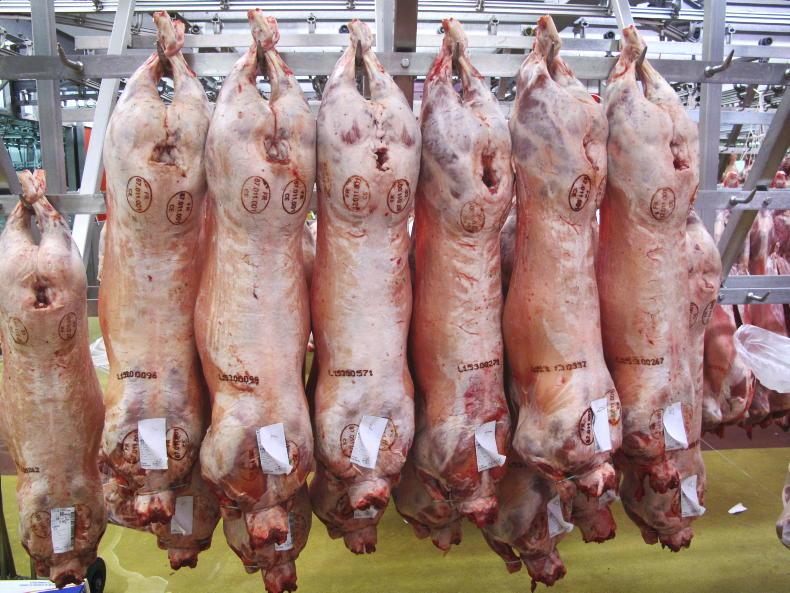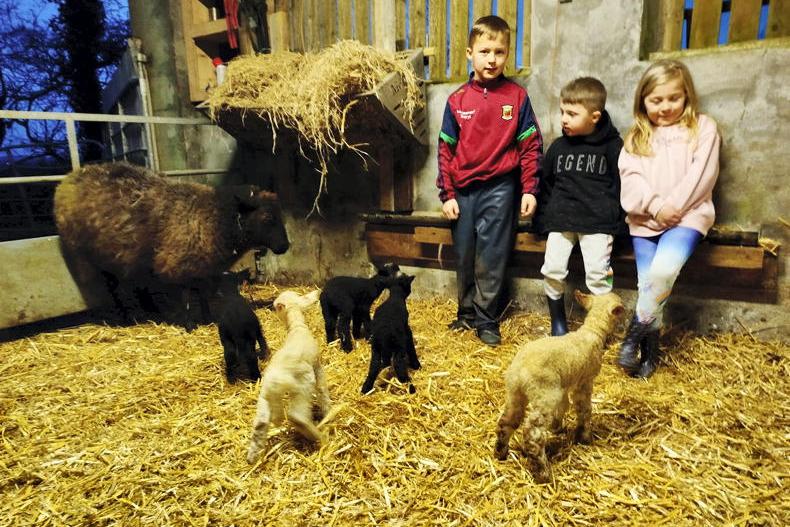It is almost nine months since I decided to significantly reduce my workload, and more than three months since this plan came into effect.
For anyone in a similar position, I thought it might be useful to report whether my world caved in, or something altogether more pleasant occurred. In the event, it has been by far the most positive move for me in decades. Simple as that.
After spending all my working life being as busy as possible, I reached the 60 mark and gradually realised that not only was I not getting the same pleasure from hard, pressurised work, but also was acutely aware that horsepower was diminishing steadily too.
The signs had been steadily increasing for a few years. For instance, I noticed myself making some sort of involuntary noise as I passed underneath the electric fence (when it was switched on). I’d describe it as a sort of constipated groan. People of a certain age may be familiar with this.
And when I went away for the afternoon with the chainsaw to stock up on winter fuel, I struggled to get out of the chair that evening. Not only did the chainsaw seem to be getting heavier but throwing logs from the ground up into a trailer required frequent rest periods (with more groaning and much puffing).
Birthing ewes seem to be getting faster and stronger too: rather than running them down in the lambing shed, I now favour yelling for Susan, and she is expected to magically appear inside five seconds to offer support.
Mental stress
Apart from the physical nature of our work, we should never ignore the mental stress associated with farming, and taking a backward step has been something of a revelation for me.
I could not claim to have suffered from poor mental health (that would be doing a disservice to those unfortunate folk who suffer full-blown depression) but it was only when I took my foot off the accelerator that I have become aware of how much better my general mood tends to be.
My wife has remarked on it, and at first I assumed it would only last for a week or two, as a reaction to quitting the poultry with its associated pressures. However, I am still revelling in the newfound freedom of not having a constant list of jobs needing done, and certainly am only beginning to realise just how tying the constant birdhouse work was becoming for a one-man band.
Along with not having to strip out and wash equipment there came an unexpected bonus – unlimited housing for sheep and lambs during poor weather.
This, along with extra available time, has combined to make this year’s lambing season by far the most enjoyable of my life. I cannot pretend to have been killed with the workload, but it has been lovely to footer around the lambing shed for half the afternoon while only one or two ewes were lambing.
And if I was up with someone lambing at 2.30am, I was able to sit down and doze for half an hour that afternoon. I can hardly believe that only a few years ago I was lambing sheep, while preparing birdhouses for new chicks and nipping off to sow fertiliser for anxious clients at the same time.
I suppose you could say I have ‘crossed the Rubicon’, because I have no intention of going back and cranking things up again.
Reaction of others
One of the hardest aspects of making this sort of conscious decision is the reaction of our peers. There is an appalling culture within agriculture that unless you’re working around the clock, then you should hang your head in shame.
If I’m honest, a younger version of myself was part of this charade, and it was all too easy to become submerged and just go with the flow.
If anyone wants to work, quite literally, until they drop, that is their prerogative and good luck to them. Everyone is different and no two people will be turned on by the same things.
All I can say is that I want more time off and away from the farm and although it is early days, I haven’t felt this lightness of mood in decades. I hope it lasts.
Read more
Farmer Writes: big changes afoot for new year
Farmer Writes: latest stories from the lambing shed
It is almost nine months since I decided to significantly reduce my workload, and more than three months since this plan came into effect.
For anyone in a similar position, I thought it might be useful to report whether my world caved in, or something altogether more pleasant occurred. In the event, it has been by far the most positive move for me in decades. Simple as that.
After spending all my working life being as busy as possible, I reached the 60 mark and gradually realised that not only was I not getting the same pleasure from hard, pressurised work, but also was acutely aware that horsepower was diminishing steadily too.
The signs had been steadily increasing for a few years. For instance, I noticed myself making some sort of involuntary noise as I passed underneath the electric fence (when it was switched on). I’d describe it as a sort of constipated groan. People of a certain age may be familiar with this.
And when I went away for the afternoon with the chainsaw to stock up on winter fuel, I struggled to get out of the chair that evening. Not only did the chainsaw seem to be getting heavier but throwing logs from the ground up into a trailer required frequent rest periods (with more groaning and much puffing).
Birthing ewes seem to be getting faster and stronger too: rather than running them down in the lambing shed, I now favour yelling for Susan, and she is expected to magically appear inside five seconds to offer support.
Mental stress
Apart from the physical nature of our work, we should never ignore the mental stress associated with farming, and taking a backward step has been something of a revelation for me.
I could not claim to have suffered from poor mental health (that would be doing a disservice to those unfortunate folk who suffer full-blown depression) but it was only when I took my foot off the accelerator that I have become aware of how much better my general mood tends to be.
My wife has remarked on it, and at first I assumed it would only last for a week or two, as a reaction to quitting the poultry with its associated pressures. However, I am still revelling in the newfound freedom of not having a constant list of jobs needing done, and certainly am only beginning to realise just how tying the constant birdhouse work was becoming for a one-man band.
Along with not having to strip out and wash equipment there came an unexpected bonus – unlimited housing for sheep and lambs during poor weather.
This, along with extra available time, has combined to make this year’s lambing season by far the most enjoyable of my life. I cannot pretend to have been killed with the workload, but it has been lovely to footer around the lambing shed for half the afternoon while only one or two ewes were lambing.
And if I was up with someone lambing at 2.30am, I was able to sit down and doze for half an hour that afternoon. I can hardly believe that only a few years ago I was lambing sheep, while preparing birdhouses for new chicks and nipping off to sow fertiliser for anxious clients at the same time.
I suppose you could say I have ‘crossed the Rubicon’, because I have no intention of going back and cranking things up again.
Reaction of others
One of the hardest aspects of making this sort of conscious decision is the reaction of our peers. There is an appalling culture within agriculture that unless you’re working around the clock, then you should hang your head in shame.
If I’m honest, a younger version of myself was part of this charade, and it was all too easy to become submerged and just go with the flow.
If anyone wants to work, quite literally, until they drop, that is their prerogative and good luck to them. Everyone is different and no two people will be turned on by the same things.
All I can say is that I want more time off and away from the farm and although it is early days, I haven’t felt this lightness of mood in decades. I hope it lasts.
Read more
Farmer Writes: big changes afoot for new year
Farmer Writes: latest stories from the lambing shed










SHARING OPTIONS